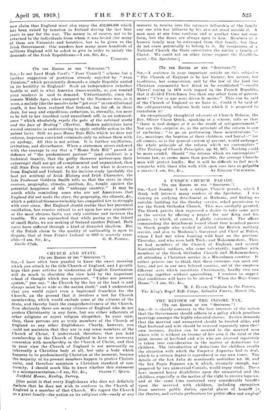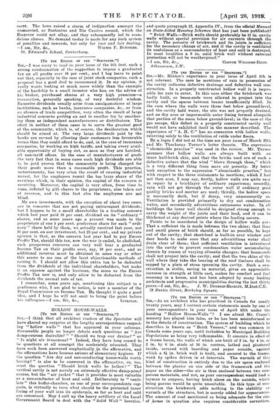THE REFORM OF TUE INCOME TAX.
ITo THE EDITOR or THE " SPECTATOR."] SIR,—IL is clearly contrary to the best interests of the notion that the Government should adhere to a policy which penalizes marriage amongst the highly educated classes. Justice demands that the married and unmarried should be treated alike, and that husband and wife should be assessed separately upon Mei- own incomes. Justice can be seemed to the married amt whose wife is without an income of her own if the total of I he joint income of husband and wife who are assessed separately is taken into consideration in the matter of deductions for children. The introduction of deductions for children recalls the situation with which the Emperor A ugustua lied to deal, which to a certain degree is reproduced its our own times. The details of the Lex Julia de maritandis Ordinibus ex. 18, and the Lex Papia Poppaea A.D. 9, which, strangely enough, was proposed by two unmarried Consuls, would repay study. Them laws, imposed heavy disabilities upon the unmarried and the childless, especially in the matter of the right to receire legacies, and at the same time conferred very considerable benefits upon the married with children, including exemption from onerous public duties, special places of honour
the theatre, and certain preferences for public office and employ. . meat. The laws raised a storm of indignation amongst the unmarried, as Suetonius and Dio Cassius record, which the Emperor could not allay, and they subsequently led to scan- dalous abuses. No demand to-day is made for any such system of penalties and rewards, but only for just and fair dealing.
—I am, Sir, Am, WALTER F. BURNSIDE. St. Edmund's School, Canterbury.







































 Previous page
Previous page